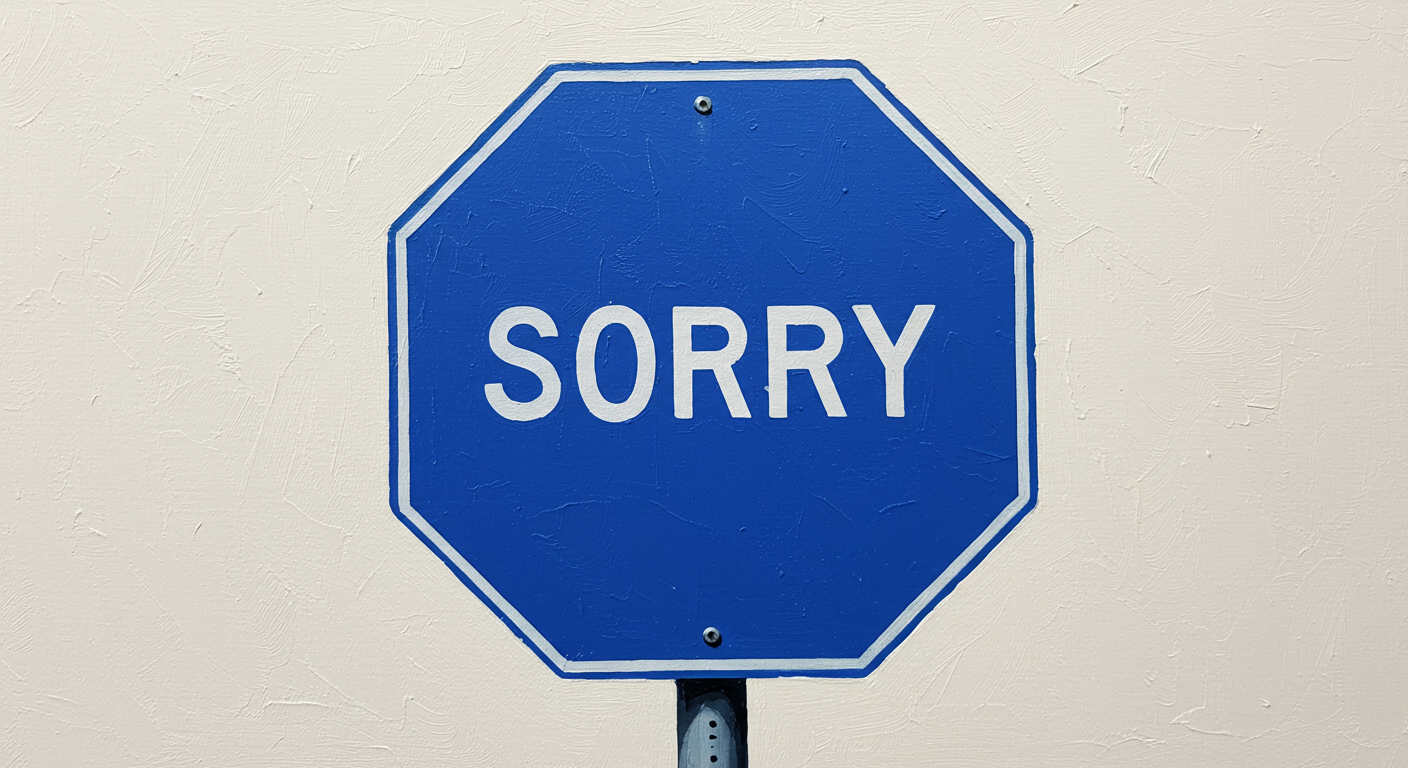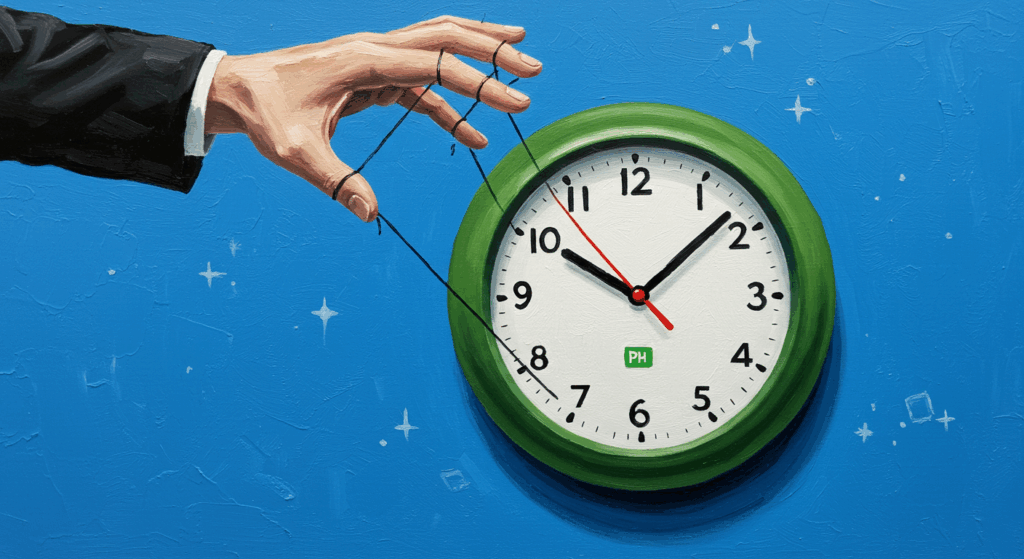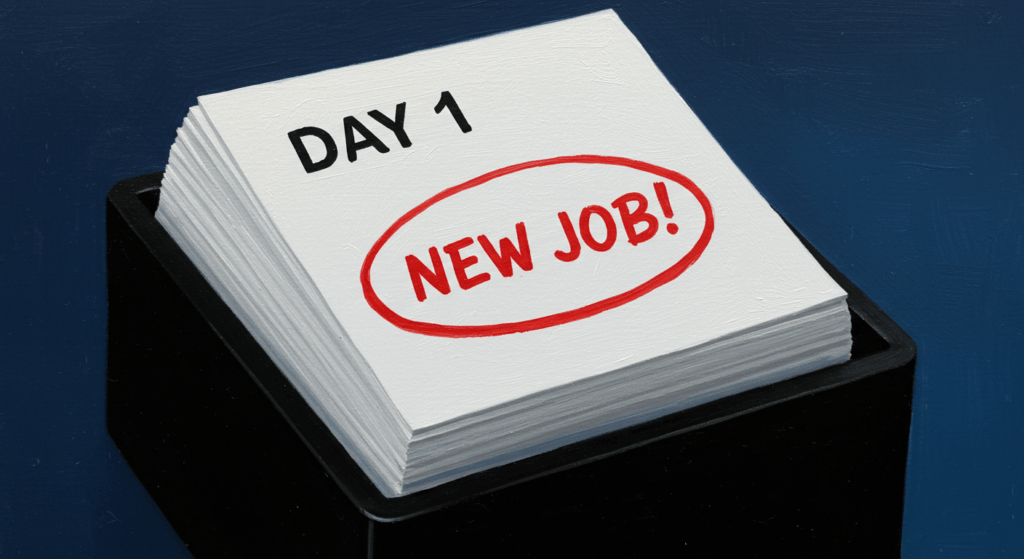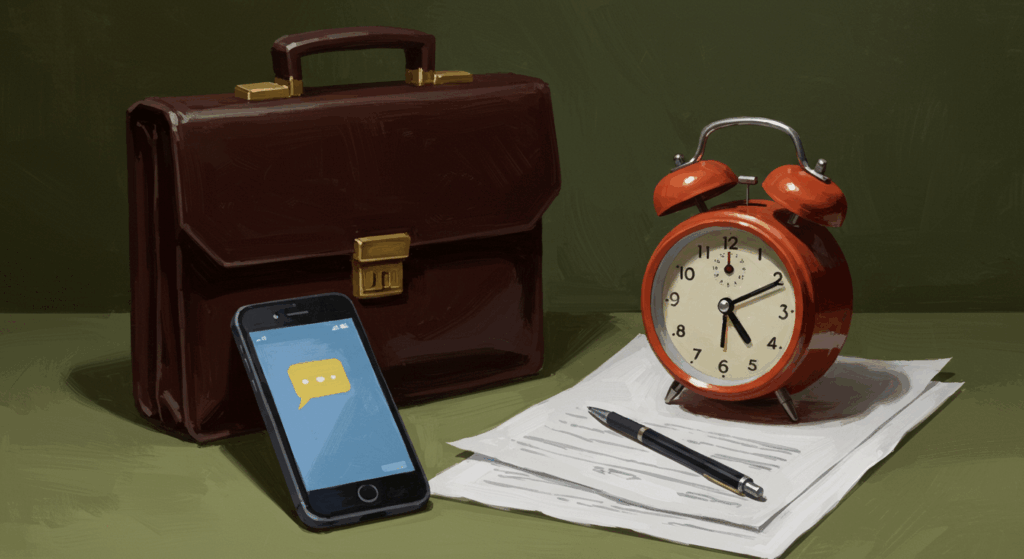So… You Messed Up
Okay, let’s be real for a second: everybody screws up. Like, literally everybody. Even that super polished coworker who always seems to have their Google Calendar color-coded and their lunch prepped in perfect glass containers. Yeah, they’ve made mistakes too—probably just learned to play it off like a pro. The truth is, messing up isn’t the problem; how you handle the mistake is where the game actually changes.
Think about it. Remember in high school when you accidentally sent a risky text to the wrong person? (pain). Or when you thought “just one episode” on Netflix meant you could still wake up on time? The actual mistake wasn’t the end of the world, but how you responded to it—apologizing, laughing it off, making up for it—that’s what sticks. Same thing in work and adult life, except with, like, paychecks and reputations on the line.
So let’s talk about how to handle mistakes like a professional, but in a way that feels doable for normal humans (aka us, who still sometimes burn instant ramen).
Why Mistakes Feel So Huge
Here’s the thing: when you’re new to a job or still figuring out your career, every little mistake feels like the end of the world. Late email? Disaster. Misspelled client name? Pure shame. Accidentally hit “Reply All”? Oof, career-ending vibes.
But most of the time, the way we feel about our mistakes is way harsher than how anyone else sees them. To your boss, it might be a small hiccup. To you, it’s the equivalent of falling on stage at Coachella in front of 100k people. The difference? Perspective.
The fear usually comes from not wanting to look incompetent. Especially if you’re in your “First Job Starter Pack” era—you know, when you’re rocking the cheap coffee, nervous smiles, and trying to remember everyone’s names without looking at the desk nameplates. It’s easy to overthink. But mistakes are part of the learning curve, not proof that you’re trash at your job.
What to Do
1: Own It Fast
Alright, let’s get practical. The first thing to do when you realize you messed up? Admit it. Fast. The longer you wait, the weirder it gets. It’s like when you tell a little white lie, and then you have to keep stacking more lies on top to cover it up—eventually you’re trapped in a weird house of cards built out of awkwardness.
Professionals respect honesty way more than cover-ups. So if you sent the wrong file, mixed up a detail, or missed a deadline, just say:
“Hey, I realized I made a mistake on [thing]. Here’s what happened, and here’s how I’m fixing it.”
Notice that last part? Don’t just drop the problem in someone’s lap. Pair it with a solution, or at least an attempt at one. Bosses love that energy.
2: Keep Your Cool
Easier said than done, right? But panicking never makes things better. When you freak out, you lose credibility—even if the mistake wasn’t that bad to begin with.
Think about when your phone freezes. If you calmly restart it, it’s fine. If you start frantically pressing all the buttons, now it’s really broken. That’s basically how people see you when you’re spiraling over a small error.
So take a beat. Breathe. Grab a glass of water. (Or iced coffee, no judgment). Then deal with the mistake in a way that feels calm and collected, even if you’re screaming internally.
3: Apologize Without Over-Apologizing
This one’s tricky. You want to acknowledge the mistake, but if you’re constantly groveling like “I’m sooo sorry omg please don’t hate me,” it can make people lose confidence in you. Over-apologizing actually puts more attention on the slip-up than necessary.
The pro move? A short, clear apology:
“My bad, I misunderstood the instructions. Won’t happen again.”
And then… move on. Don’t dwell. Don’t spiral. People will respect that.
4: Actually Learn From It
Here’s where the growth part kicks in. Mistakes are only useful if you grab the lesson hiding inside them. If you missed a meeting because you forgot to check your calendar, maybe it’s time to set up reminders. If you botched a task because you didn’t ask enough questions, make a note to clarify things earlier next time.
Ngl, it’s kind of like video games. The first time you die at a level, it sucks. But you respawn with a little more knowledge about what not to do, and eventually you get through it. Same thing with mistakes—you level up every time you learn.
5: Don’t Let It Define You
Here’s the tea: nobody remembers your mistake as much as you think they do. Like, seriously. People are too busy worrying about their own lives, emails, and Spotify playlists to keep a tally of your slip-ups.
One mistake doesn’t mean you’re “the person who always messes up.” Unless you consistently repeat it without trying to improve, people will see it as what it is—a one-off.
So cut yourself some slack. You’re human, not a robot. (And even robots glitch, let’s be real).
The Long-Term Glow-Up
If you keep handling mistakes well, something magical happens: people actually start to trust you more. Why? Because they know you’ll be transparent if something goes wrong. You build a reputation for being reliable because you handle the not-so-great moments with maturity.
And trust me, in the long game of careers, that’s huge. Nobody’s looking for perfection—they’re looking for people who can roll with challenges without falling apart.
Mistakes in Friendships and Life Too
Quick side note: this whole thing doesn’t just apply to jobs. Handling mistakes professionally is kinda like a life skill. Forgetting a friend’s birthday? Misunderstanding a text? Accidentally ghosting someone for a week? (Oops.) Same rules apply: own it, apologize clearly, make it up, and don’t overdo the self-blame.
Your relationships will actually get stronger if you show people you’re willing to admit when you’re wrong. It’s mature, and honestly, kinda rare.
A Few Things Not to Do
Just so we’re crystal clear, here’s what you wanna avoid:
- Blaming someone else. Nothing screams “untrustworthy” like pointing fingers.
- Ghosting the situation. Pretending the mistake didn’t happen makes it worse.
- Making excuses. Explaining is fine, but don’t spin it into “it wasn’t my fault.” Own your part.
- Melting down in public. Save the freak-out for your journal, bestie, or dog.
Mistakes Don’t Mean Failure
At the end of the day, mistakes aren’t proof that you suck at life. They’re literally proof that you’re trying. People who never make mistakes? Yeah, they’re not doing much. Taking risks, learning, pushing yourself—that’s where the stumbles happen.
And honestly? The best stories come from mistakes. (You think your grandpa tells tales about the times he did everything perfectly? Nah, it’s always the funny fails.)
Wrapping It Up
So yeah, mistakes will happen. In work, in love, in life, everywhere. But you don’t need to dread them like they’re a career-killer. If you own it, stay calm, apologize properly, and learn the lesson, you’ll actually come out looking more professional, not less.
And if you’re still in your First Job Starter Pack stage, just remember: the people you’re looking up to right now have been there too. They’ve made bigger mistakes than you can even imagine—and survived.
So next time you slip up, instead of spiraling, ask yourself: “Okay, how do I handle this in a way that Future Me will be proud of?”
Because honestly? That’s all professionalism really is. Not being perfect. Just handling the messy parts with a little bit of grace, a little bit of humor, and maybe an iced latte in hand.
You got this. Seriously. Whatever mistake you’re stressing about right now—it’s not the end. It’s just one chapter. Keep learning, keep showing up, and keep moving forward. The glow-up is coming.
Now go handle life like the professional(ish) boss you’re becoming.









